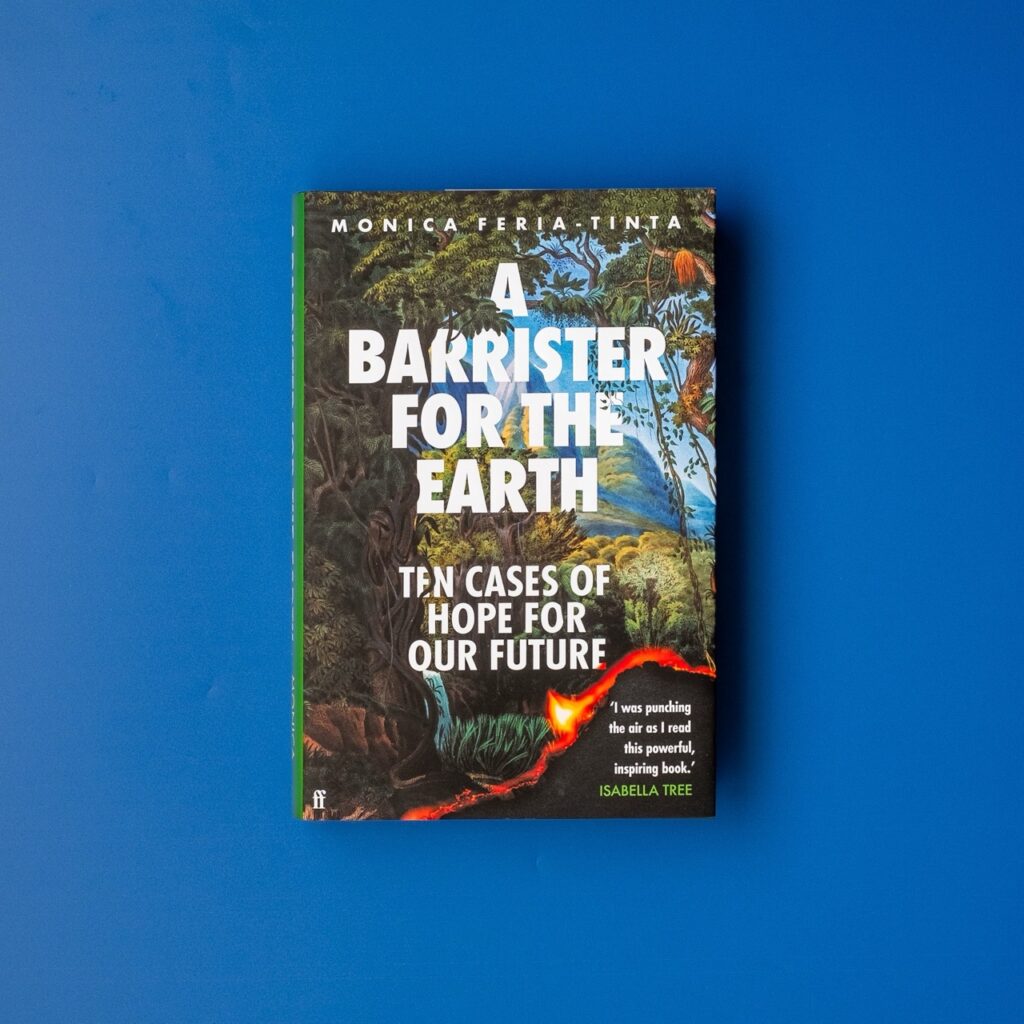
Does nature have rights? I wondered as I began reading how Master Monica Feria-Tinta would convince her readers that, yes, it does.
Early in the book, she offers the simple observation that ‘corporations are not sentient. Yet, they have rights in our systems of laws.’ I spent the rest of my weekend unable to put down this intellectually rigorous and deeply personal account of Feria-Tinta’s journey through fascinating and consequential cases that have reshaped the role of law at the intersection of climate change and human rights.
A native of Peru with familial roots in the Quechua people of the Andes, Feria-Tinta’s own journey to her work as an international law barrister follows a path as a law student in Lima to becoming the first Latin American lawyer to be Called to and practising at the Bar in England and Wales. A Lawyer Awards 2025 finalist for the ‘Barrister of the Year’, her venerable credentials and expertise make her among the most capable to write about the role of international law in the climate crisis.
Soon after learning of the publication of this book, I broke from my perennial dedication to fiction (I read widely – from Towles to Dickens, Fry to Ferrante) and found myself transported to far-flung worlds, immersed in the elements of a literary and legal adventure. Over ten chapters, Feria-Tinta takes her readers on a journey to a cloud forest in Ecuador, a river in Myanmar, the shores of West Timor, and exciting points in between. Seemingly insurmountable threats imposed upon nature, often by outside, monied, unseen forces, unfold with emotional resonance. At the same time, Feria-Tinta delicately weaves together the tapestries of lives and livelihoods of those impacted. This is as much an account of important historical and social context, rich cultural heritage, and past and present injustices, as it is a roadmap through the web of legal instruments, mechanisms, and creative argumentation necessary to protect the rights of nature and those who depend on it.
In the chapter recounting the Torres Strait case, her storytelling is a masterclass in organising the complex elements of an unfolding crisis. You don’t have to imagine the desperation of the Torres Strait islanders, scattered across sinking and spinning islands in the strong and rising tidal currents where the Pacific Ocean and the Indian Ocean meet; Feria-Tinta gives voice to some of those most vulnerable to climate change:
Our island is the string connecting us to our culture. It ties us to who we are. If we were to have to move we would be like helium balloons disconnected from our culture. Our culture would become extinct. We would be a dying race of people.
Feria-Tinta ensures that you won’t be left feeling helpless to the cause – rather, quite the opposite. She does not shy away from getting into the task at hand, laying out the legal issues involved, bringing in arguments from all sides, and letting the readers in on her process. Her experience and training allow her to see connections where others might see silos, drawing on human rights law, environmental law, and indigenous rights. She often argues that the ripple effects from environmental degradation merit the breakdown of barriers between the civil-political rights and economic-social rights frameworks – threats from climate change demand a paradigm shift.
Her sharp analysis demonstrates to the readers that existing sources of international law can serve as wide-reaching protective instruments when read in complement to one another. For example, the standards of the Paris Agreement were relevant to the Torres Strait Islanders – an argument that aligns with a United Nations study group’s observation that the limited jurisdiction of an adjudicative body does not imply a limitation on the law applicable in the interpretation of a treaty. And while the term ‘climate change’ is nowhere mentioned in the International Covenant on Civil and Political Rights, obligations contained in the Paris Agreement could be made justiciable using the principle of ‘systemic integration’. I found myself reading with pen in hand to collect these practical insights on various provisions of law.
The UN Human Rights Committee agreed that the Paris Agreement was found to be relevant to interpret human rights obligations of a state in relation to climate action, and the Torres Strait islanders succeeded in showing that Australia had failed to adequately protect them against adverse impacts of climate change in breach of the International Covenant on Civil and Political Rights.
The equally groundbreaking Los Cedros case in Ecuador is unique in that there was no voice to protect – no human voice, that is. This case was based solely on the intrinsic value of nature, with the Constitutional Court of Ecuador observing that:
A river, a forest or other ecosystems are seen as life systems whose existence and biological processes merit the highest possible legal protection that a constitution can grant: the recognition of rights inherent to a subject.
Feria-Tinta opens this chapter with a distillation of the environmental significance of the Los Cedros primeval forest and its importance as a biodiverse habitat supporting hundreds, if not thousands, of endemic species – including the Andean spectacled bear, the inspiration for the fictional Paddington Bear.
Before reaching her legal analysis, readers are treated to something rare in legal writing, a personal display of Feria-Tinta as she is: inspired by Alexander von Humboldt’s notions of human interconnectedness with nature; dazzled by the more recent work of Dacher Kelter’s Awe: The Transformative Power of Everyday Wonder; laser-focused on writing to the tune of David Bowe’s Starman; and culminating with the image of her seated in her gown and wig at her kitchen table in London, taking copious notes, and waiting to argue for the rights of an ‘irreplaceable world,’ a cloud forest in Ecuador.
I found A Barrister for the Earth to be exceptional for its accessibility and stylistically a joy to read. Feria-Tinta strikes the balance between moving storytelling, emotional transparency, and rich legal analysis that will stay with you well after finishing the book.
Legal professionals should consider it essential reading for its blueprint on how to approach complex transboundary issues with creativity and compassion. General readers will encounter an approachable introduction to the intersection of environmental law, human rights, and climate change. For everyone, a call to action is reinforced by the hope that the law, as illuminated by Feria-Tinta in this powerful account, can be a source of optimism and action to preserve the rights of humans and nature.

Andrew S Horsfall oversees international and London-based programs for Syracuse University College of Law (US). Based in London and admitted to practise law in New York, he is also pursuing an MSc in Global Health with a focus on food security, sustainability, and biodiversity.

Master Monica Feria-Tinta is a barrister at Twenty Essex, specialising in public international law. She was The Times’ first ‘Lawyer of the Week’ in 2025, won the ‘Woman of the Year’ award at the Women & Diversity in Law Awards 2025, was ‘Barrister of the Year’ finalist at The Lawyer Awards 2025, and won ‘Environment Junior of the Year’ at the Chambers & Partners UK Bar Awards 2023. She has been referred to as ‘one of Britain’s most dazzling legal minds’.

